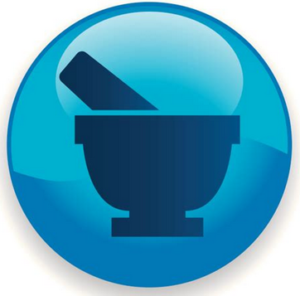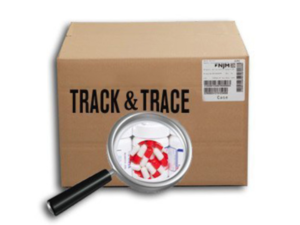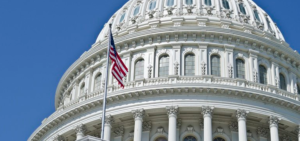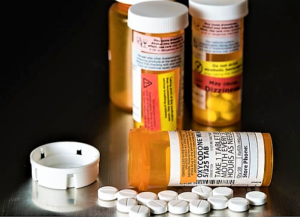- Nevada’s drug transparency program could get two years of funding as lawmakers consider expanding its scope (thenevadaindependent.com)
Four years after passing the state’s first drug transparency law, lawmakers may finally put dollars behind the effort as they continue to build upon the original legislation this session...Members of the Senate Finance Committee this week considered a $780,000 fiscal note from the Department of Health and Human Services on the latest drug transparency bill, SB380, which would allow state health officials to transfer the existing drug transparency database to the state’s Enterprise Information Technology Services Division, where it would live and be maintained moving forward. It also would allow the state to hire a pharmacist to manage the drug transparency program and a management analyst to assist with the program’s facilitation...READ MORE
- PBM Reform Legislation Progresses in Michigan (drugtopics.com)
A new legislation recently passed by the Michigan’s House of Representatives would require reforms to many pharmacy benefit manager reimbursement practices in the state...The provisions listed in HB 4348 would prohibit PBMs from reimbursing pharmacies affiliated with the PBM more than non-affiliate pharmacies; prohibit patient steering to PBM-owned pharmacies; prohibit retroactive clawbacks; require reimbursement be based on the National Average Drug Acquisition Cost; and establish fair audit procedures for community pharmacies...READ MORE
- New Massachusetts law recognizes pharmacist as providers (pharmacist.com)
...the governor of Massachusetts signed legislation that includes language recognizing pharmacists as health care providers in the state...The new law, S.2984: An Act Promoting a Resilient Health Care System That Puts Patients First, not only expands scope of practice for certain health care providers, but also increases insurance coverage for telehealth services...“This is a culmination of nearly a decade of advocating for pharmacists and their profession in our state,” said Massachusetts Pharmacists Association President Maureen Judkins, PharmD...READ MORE
- Track-and-trace requirements go into effect on Friday (pharmacist.com)
Starting Friday, November 27, 2020, pharmacies must buy and sell only products with a required “product identifier” on their packages. This requirement is part of the phased-in implementation of the Drug Supply Chain Security Act of 2013, also known as the “track-and-trace” law. By Friday, dispensers should be familiar with this requirement and know what to do if a product identifier is not on the package when they receive products that require it. The product identifier is on most drug packages in both human-readable format and on a machine-readable 2D data matrix barcode...“The challenge for dispensers is that not all drug product packages are required to have a product identifier, and there is no central database to check if a product should have one,”...READ MORE
- New Bill Would Expand Medicare Patients’ Access to Pharmacist Services (pharmacypracticenews.com)
Two U.S. representatives, G.K. Butterfield and David McKinley introduced the Pharmacy and Medically Underserved Area Enhancement Act, which would provide reimbursement to pharmacists who deliver Medicare Part B services that are already authorized by their respective state laws...“Under this bill, Medicare will pay pharmacists at 85% of the Physician Fee Schedule,” explained Tom Kraus, the vice president of government relations at ASHP. “This is an important step to improve access to care for Medicare beneficiaries and helps ensure that serving these patients will be financially sustainable.”...READ MORE
- Democrats eye Medicare negotiations to lower drug prices (fiercehealthcare.com)
Democrats...are united behind an idea that Republican lawmakers and major drugmakers fiercely oppose: empowering the Department of Health and Human Services to negotiate the prices of brand-name drugs covered by Medicare...Democrats hope to authorize Medicare negotiations on payments for at least some of the most expensive brand-name drugs and to base those prices on the drugs’ clinical benefits...READ MORE
- Here are the top healthcare items in Biden’s proposed $1.9T COVID-19 relief plan (fiercehealthcare.com)
President-elect Joe Biden’s new $1.9 trillion COVID-19 relief plan includes money for boosting subsidies to help pay down the costs of Affordable Care Act exchange plans, bolstering supplies and for vaccine distribution...The American Relief Plan...includes new investments in supplies for strapped hospitals, money for vaccines and testing and seeks to give front-line healthcare workers new federal protections...A key pillar of the plan is $20 billion for a national vaccine program that partners with state and local governments. The plan will launch community vaccination centers around the country and mobile units for any hard-to-reach areas...READ MORE
- Senate committee advances bill to create ‘988’ mental health hotline, set plan for allocating opioid settlement funds (thenevadaindependent.com)
A legislative committee unanimously passed a bill that would create a state fund to house proceeds from opioid settlements, such as those against prominent pharmaceutical companies accused of helping fuel the opioid crisis...The bill would establish the “Nevada Fund for Healthy Communities,” which would hold the proceeds of state litigation against opioid manufacturers, distributors, sellers and marketers — including the $45 million Nevada is set to receive from the settlement of a lawsuit against consulting firm McKinsey & Company, which provided services for opioid manufacturers...READ MORE
- As Drug Prices Keep Rising, State Lawmakers Propose Tough New Bills to Curb Them (khn.org)
Fed up with a lack of federal action to lower prescription drug costs, state legislators around the country are pushing bills to penalize drugmakers for unjustified price hikes and to cap payment at much-lower Canadian levels...These bills, sponsored by both Republicans and Democrats in a half-dozen states, are a response to consumers’ intensified demand for action on drug prices as prospects for solutions from Congress remain highly uncertain...READ MORE
- Should pharma charity contributions be publicly disclosed, just like doctor payments? Senators say yes (fiercepharma.com)
Pharma companies have inked a series of federal settlements over payments to charity organizations, which the federal government argues are a “conduit” to boosting drug sales. Now, after an opioid investigation, two Senators want all those charity payments disclosed publicly...And they have just the mechanism for it. Sens. Chuck Grassley and Ron Wyden have called for an expansion of the Centers for Medicare and Medicaid Services Open Payments database. That database now includes payments from pharma companies to doctors and other medical providers, but the senators propose adding payments to tax-exempt groups, too...READ MORE










